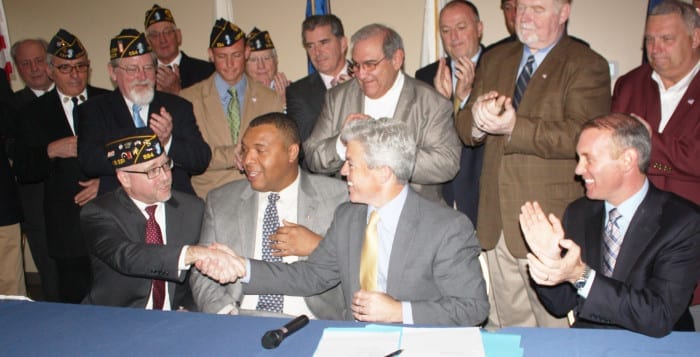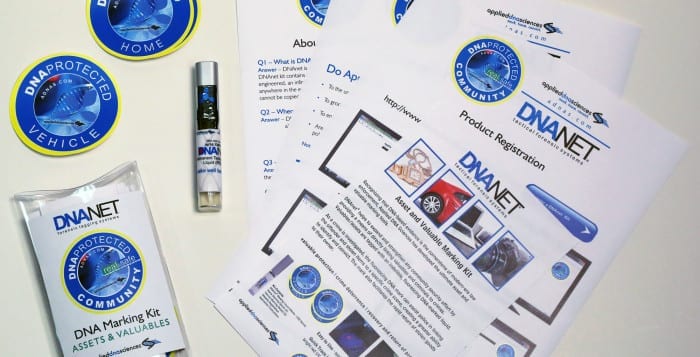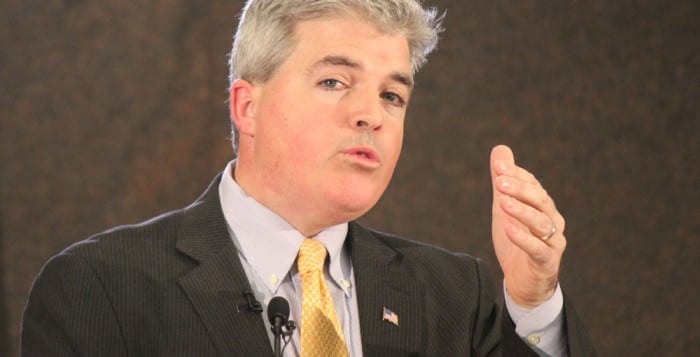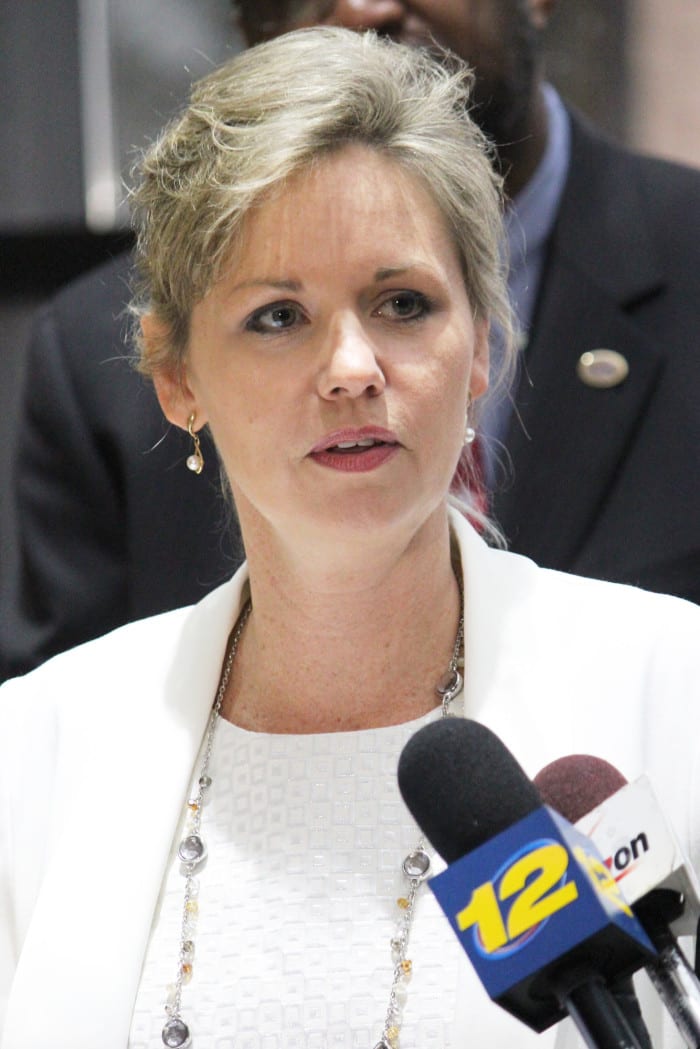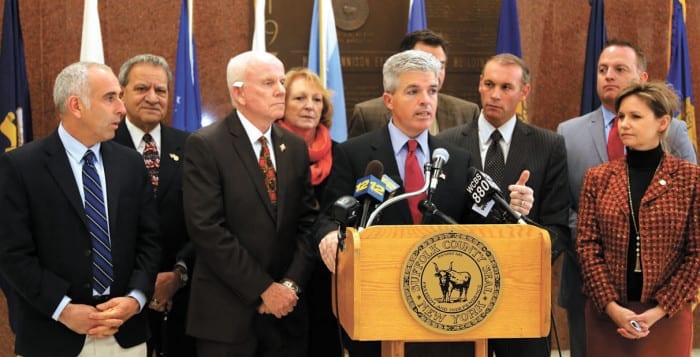A roomful of veterans and lawmakers gathered in Northport on Monday morning to salute the signing of two new Suffolk County bills aimed at protecting veterans and the public against acts of stolen valor.
County Executive Steve Bellone (D) signed the legislation, which was spearheaded by Legislator William “Doc” Spencer (D-Centerport), into law. One of the bills makes it illegal for individuals to fraudulently represent themselves as decorated veterans to members of the public in order to solicit donations or obtain money, property or other benefits. The law makes it a misdemeanor punishable by a fine of up to $1,000 and/or one year in prison.
The second law imposes stiffer requirements on veteran nonprofit groups that solicit donations in Suffolk County. Such groups will be required to disseminate financial information to the public about how their fundraising dollars are being spent.
The laws were born out of a joint effort of many veterans, Spencer said, namely John Cooney, the commander of the Northport American Legion Post 694 and Tom Kehoe, former Northport Village Board. Both men held Spencer’s “feet to the fire” to get the legislation drafted, particularly after what Cooney described as instances in Huntington Town in which individuals fraudulently represented themselves as veterans for personal gain.
“The needs of our veterans and the desire to give on part of our residents can create vulnerability, as organizations and individuals have sought to take advantage, to profit from these circumstances,” Spencer told an audience of veterans at the Northport American Legion. “The two bills that we sign here today will work in conjunction to ensure our charitable dollars go where they should go — to support our veterans.”
A number of local leaders attended the conference, including Suffolk County Legislator Rob Trotta (R-Fort Salonga), Legislator Steve Stern (D-Dix Hills), Supervisor Frank Petrone (D), Councilman Gene Cook (I), Northport Village Mayor George Doll and Northport Village Police Chief Ric Bruckenthal. The village police chief lost his son, Nathan Bruckenthal, a U.S. Coast Guardsman, who was killed in a terrorist-suicide bombing in Iraq 11 years ago this week.
“Why are we here today?” Bellone, who is also a veteran, said. “Because the notion that someone would step forward and put themselves out as a veteran of this country in order to raise money to benefit themselves is an absolute disgrace and it is something that we cannot under any circumstances tolerate. And it’s a disgrace when you have young men like [Nathan] Bruckenthal, who has family who paid the ultimate sacrifice in service to our country and you have men like that all across our country.”
Nonprofit groups seeking to solicit donations on behalf of veterans must register with the county’s Veterans Services Agency before doing so, and that process would be enhanced under this new legislation. Those groups would now have to submit information on how the funds they’ve raised benefited veterans, and they would need to provide a slew of new documents, including federal and state tax returns and the names of the group’s board of directors. The Office of the Suffolk County Comptroller would work with the Veterans Services Agency to review the information, and the agency would ultimately decide whether to approve or deny an application.
Individuals would be barred from fraudulently representing records of military service, and anyone who makes mention of their military service must provide, upon demand, proof in the form of credentials or identification of their veteran status. The Veterans Services Agency can deny or revoke a group’s registration certificate if it’s deemed that someone from the group violated the federal Stolen Valor Act.
“This is a great example of veterans coming together and working with our committed legislators to provide and protect,” Cooney said. “To protect the valor and the integrity of those who have served. And to ensure that funds go to those veterans that legitimately need assistance.”

